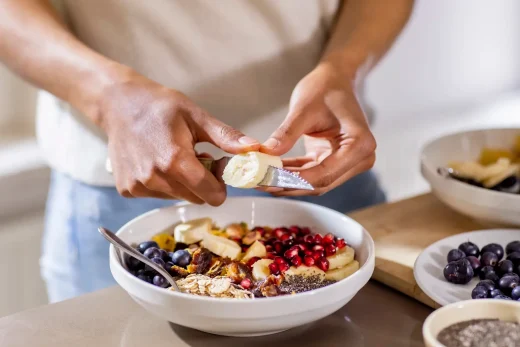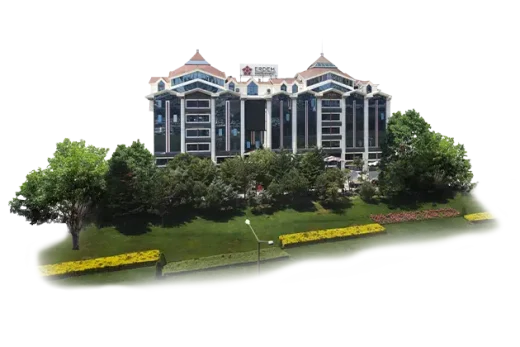Whether you’re training for performance, weight loss, or muscle gain, what you eat before and after a workout plays a crucial role in your results. Food is more than just fuel, it’s also your body’s primary tool for repairing, rebuilding, and growing.
From the timing of protein shakes to the role of carbohydrates in muscle development, this guide answers the most common questions about nutrition around exercise, especially during the hot summer months when hydration and digestion require extra attention.
Let’s explore how to optimize your workouts with smart eating strategies before and after you sweat.

Why Pre-Workout Nutrition Matters
Think of your pre-workout meal as the fuel your body will burn during exercise. Skipping it may leave you feeling weak, dizzy, or sluggish especially during intense or long-duration workouts.
The Goals of Pre-Workout Nutrition Are:
- To top off glycogen stores, your body’s primary energy source.
- To ensure stable blood sugar and energy levels.
- To support mental focus and performance.
- To prevent muscle breakdown during training.
What to Eat Before a Workout
Ideally, consume a balanced meal 2–3 hours before your workout. If you’re short on time, a snack 30–60 minutes prior can still help.
For a full meal (2–3 hours before):
- Grilled chicken with brown rice and steamed vegetables
- Tuna sandwich on whole grain bread with a side of fruit
- Lentil salad with quinoa and olive oil
For a quick snack (30–60 minutes before):
- Banana with a spoon of peanut butter
- Greek yogurt with honey and berries
- Rice cakes with almond butter
- A small smoothie with oats, milk, and fruit
The focus should be on complex carbohydrates and lean protein, with minimal fat and fiber to avoid digestive issues during the workout.
What Should You Eat After a Workout?
Your post-workout meal is essential for recovery, muscle repair, and growth. When you exercise, you create tiny tears in your muscle fibers. Nutrition helps rebuild those fibers stronger and more resilient.
The Goals of Post-Workout Nutrition Are:
- To replenish glycogen stores lost during exercise.
- To stimulate muscle protein synthesis.
- To reduce muscle soreness and speed recovery.
- To rehydrate and replace lost electrolytes.
The “Anabolic Window”: Is Timing Important?
The idea of the “anabolic window” , a short period after exercise when your body is especially primed to absorb nutrients, has been popular for years. While newer research shows the window may be wider than once thought, eating within 30–60 minutes post-exercise is still considered optimal, especially for those training intensely or multiple times a day.
Should You Consume Protein Immediately After a Workout?
Yes, protein intake shortly after exercise is beneficial, especially for muscle recovery and growth. During resistance training or intense cardio, your body begins breaking down muscle protein. Providing amino acids post-workout helps reverse this catabolism and supports muscle repair.
How Much Protein Do You Need?
- Endurance athletes: 15–20 grams of high-quality protein
- Strength trainers: 20–30 grams per serving
Sources include:
- Whey protein shakes (quickly absorbed)
- Grilled chicken or turkey breast
- Eggs or egg whites
- Cottage cheese
- Plant-based options like tofu or soy protein
Is Carbohydrate Intake Necessary for Muscle Growth?
Absolutely. While protein often takes center stage, carbohydrates play a vital role in muscle development by:
- Restoring glycogen used during training
- Reducing muscle breakdown
- Stimulating insulin release, which helps amino acids enter muscle cells
- Supporting sustained energy in your next session
For optimal recovery, pair your post-workout protein with moderate-to-high glycemic carbs such as:
- White rice or sweet potatoes
- Pasta or whole grain bread
- Bananas or other fruits
- Oats or muesli
The recommended ratio for post-workout meals is 3:1 or 4:1 carbs to protein for endurance athletes and 1:1 to 2:1 for strength trainers.
What Is the Ideal Summer Menu for Athletes?
Hot weather brings additional nutritional challenges, especially around hydration, digestion, and thermoregulation. In summer, your meals should be:
- Light yet nutrient-dense
- High in water content
- Easy to digest
- Rich in electrolytes
Sample Summer Athlete Menu:
Breakfast (Pre-workout)
- Oatmeal with chia seeds, almond milk, and banana
- A cup of herbal tea or coconut water
Post-Workout Meal
- Grilled salmon with quinoa and a cucumber-tomato salad
- Watermelon slices or a fruit smoothie with added whey protein
Snack
- Greek yogurt with honey and walnuts
- A few dates and a glass of mineral water
Dinner
- Chicken stir-fry with bell peppers, broccoli, and rice noodles
- Sparkling water with lemon
Hydration All Day: Water, coconut water, or homemade electrolyte drinks with sea salt and citrus. Avoid sugary or carbonated beverages that dehydrate the body.
How Important Is Water After Exercise?
Rehydration is just as important as refueling. When you sweat, your body loses both water and electrolytes (like sodium and potassium), which must be replaced to maintain normal muscle function, circulation, and temperature regulation.
Tips for Post-Workout Hydration:
- Drink 500–700 ml (17–24 oz) of water within 30 minutes after training.
- Add electrolyte powder or tablets if sweating was excessive.
- For long workouts in high heat, consider drinks that contain sodium, potassium, and magnesium.
- Monitor your urine: it should be light yellow, not dark or cloudy.
Dehydration after exercise can lead to headaches, fatigue, cramps, and delayed recovery. Make hydration an intentional part of your post-workout routine.
Common Mistakes to Avoid
- Skipping the post-workout meal entirely
This slows down recovery and may lead to fatigue or muscle loss over time. - Relying solely on protein and ignoring carbs
Protein is essential, but without carbs, muscle repair and energy recovery are incomplete. - Overeating high-fat meals right after training
Fat slows digestion and may delay nutrient absorption especially right after exercise. - Not drinking enough water during and after workouts
You may not feel thirsty immediately, but your body still needs fluid replenishment.
Personalized Nutrition for Long-Term Performance

Whether you’re an amateur fitness enthusiast or a seasoned athlete, timing, quality, and balance of nutrition around workouts make a significant impact on your results. At Erdem Hospital in Istanbul, dietitians and sports health experts provide individualized nutrition plans that align with your fitness level, seasonal needs, and health goals. From macronutrient optimization to hydration therapy, Erdem Hospital’s integrated approach helps you fuel your body smarter before, during, and after exercise. Backed by over 37 years of healthcare excellence, Erdem Hospital empowers you to train stronger and recover faster all year round.